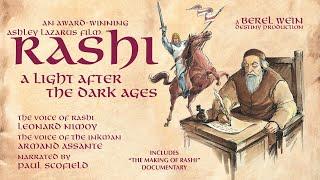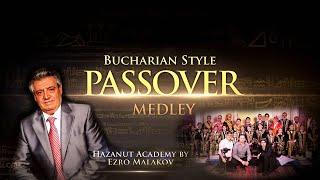Problems playing the video? Click Here to reload
Watch Videos: Random | New | Popular
All Essays | Report Video
|
Share Video
- Buy Us a Coffee -
Rabbi YY Jacobson
Between Biblical Commandments, Rabbinic Instructions, and Jewish Customs - Simchas Torah
For Source Sheets: https://www.theyeshiva.net/jewish/136
"The hallmark of a loving marriage is each partner’s readiness to fulfill the explicit will of their spouse. If one partner expresses a desire for something, the other will do everything in his or her power to bring about its fulfillment. A greater love is demonstrated when each partner also strives to fulfill the implied will of the other. To the truly devoted spouse, it makes no difference if a desire has been explicitly expressed or merely hinted at—he or she will carry it out with the same devotion and commitment to the loved one’s gratification." "Finally, there are those very special marriages in which there is no need for even the merest of allusions. So deep is the bond between husband and wife that each intuitively knows what the other wants of him or her. Indeed, when two people love each other to such a degree, there is no greater joy than that experienced when one has succeeded in sensing and satisfying the other’s desire all on one’s own." "The observances of the month of Tishrei also fall into three categories. There are “biblical precepts”—commandments that are explicitly stated in the Torah. These include mitzvot such as sounding the shofar, fasting on Yom Kippur, or eating in the sukkah. There are also a number of “rabbinical mitzvot”—observances instituted by the prophets and the sages by the authority vested in them by the Torah. For example, the five prayer services held on Yom Kippur, the taking of the “Four Kinds” on all but the first day of Sukkot, and the pouring of the water on the Temple altar on each morning of Sukkot, are all rabbinical institutions." "Finally, the month of Tishrei has many minhagim or “customs,” such as eating an apple dipped in honey on the first night of Rosh HaShanah or conducting the kapparot in the wee hours of the morning on the day before Yom Kippur. The minhagim are not mandated by biblical or rabbinical law, but by force of custom: these are things that we ourselves have initiated as ways to enhance our bond with our Creator." "This class will analyze the difference between the three types of relationships and demonstrate how the relationship between the Jew and G-d is established during the month of Tishrei in the same three paradigms. It explored the three major categories of Jewish tradition: biblical instructions, rabbinic injunctions and Jewish customs. Finally we will discover the climax of Tishrei: The dancing Hakafot on Simchat Torah, merely a custom, yet generating the most intense joy."
in English
Between Biblical Commandments, Rabbinic Instructions, and Jewish Customs - Simchas Torah
For Source Sheets: https://www.theyeshiva.net/jewish/136
"The hallmark of a loving marriage is each partner’s readiness to fulfill the explicit will of their spouse. If one partner expresses a desire for something, the other will do everything in his or her power to bring about its fulfillment. A greater love is demonstrated when each partner also strives to fulfill the implied will of the other. To the truly devoted spouse, it makes no difference if a desire has been explicitly expressed or merely hinted at—he or she will carry it out with the same devotion and commitment to the loved one’s gratification." "Finally, there are those very special marriages in which there is no need for even the merest of allusions. So deep is the bond between husband and wife that each intuitively knows what the other wants of him or her. Indeed, when two people love each other to such a degree, there is no greater joy than that experienced when one has succeeded in sensing and satisfying the other’s desire all on one’s own." "The observances of the month of Tishrei also fall into three categories. There are “biblical precepts”—commandments that are explicitly stated in the Torah. These include mitzvot such as sounding the shofar, fasting on Yom Kippur, or eating in the sukkah. There are also a number of “rabbinical mitzvot”—observances instituted by the prophets and the sages by the authority vested in them by the Torah. For example, the five prayer services held on Yom Kippur, the taking of the “Four Kinds” on all but the first day of Sukkot, and the pouring of the water on the Temple altar on each morning of Sukkot, are all rabbinical institutions." "Finally, the month of Tishrei has many minhagim or “customs,” such as eating an apple dipped in honey on the first night of Rosh HaShanah or conducting the kapparot in the wee hours of the morning on the day before Yom Kippur. The minhagim are not mandated by biblical or rabbinical law, but by force of custom: these are things that we ourselves have initiated as ways to enhance our bond with our Creator." "This class will analyze the difference between the three types of relationships and demonstrate how the relationship between the Jew and G-d is established during the month of Tishrei in the same three paradigms. It explored the three major categories of Jewish tradition: biblical instructions, rabbinic injunctions and Jewish customs. Finally we will discover the climax of Tishrei: The dancing Hakafot on Simchat Torah, merely a custom, yet generating the most intense joy."
in English
- Category
- Marriage - Брак Sukkot - Суккот Shmini Atzeret & Simchat Torah
- Tags
- sukkot
Commenting disabled.
















